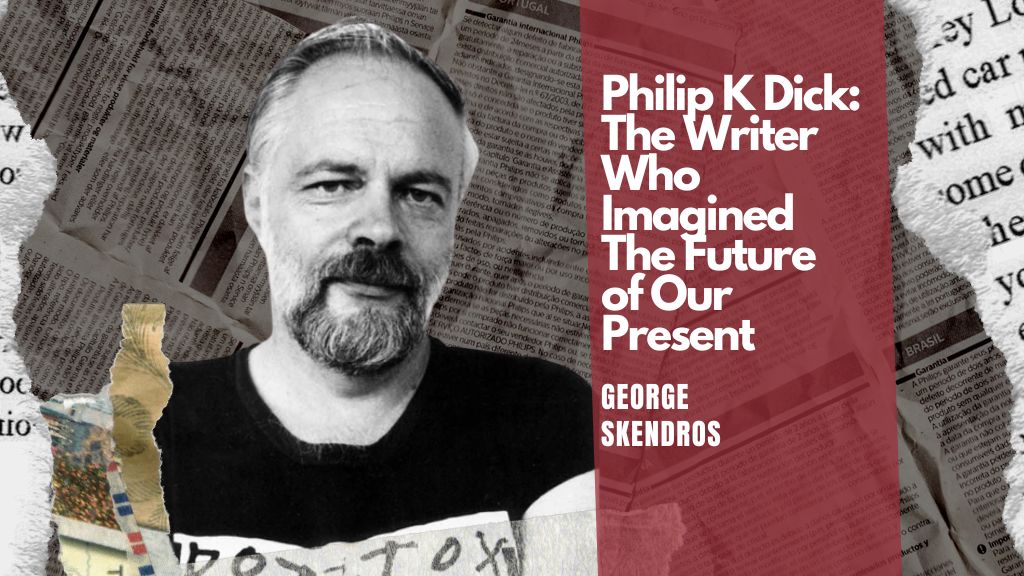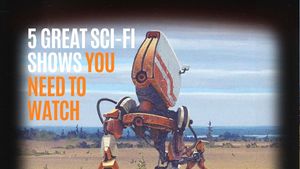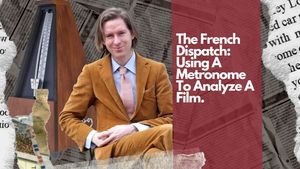
Philip K Dick: The Writer Who Imagined The Future of Our Present
A key member of the Beatnik movement of prose authors, William S. Burroughs had a significant impact on popular culture in music, art, literature, and film. Burroughs had a very experimental writing style, and it's noteworthy to note that he contributed to the creation of Blade Runner.
Of course, Philip K. Dick's 1968 book Do Androids Dream of Electric Sheep served as the inspiration for Ridley Scott's 1982 movie. Burroughs' relationship to the Rick Deckard movie starring Harrison Ford is therefore less obvious. Burroughs wrote the science fiction novella Blade Runner (a movie) in 1979.
The idea for the novella came to Burroughs when he was formulating a screenplay for Alan E. Nourse's The Bladerunner, a science fiction novel that had been published four years earlier. When he initially relocated to lower Manhattan's "the Bunker," a former YMCA, he first encountered the book there.
In the near future depicted in Nourse's work, sterilization is required for access to medical care for Earthlings in order to stop the spread of illness, disease, and infection among people. As a result, there is a growing black market for medical services. Billy Gimp, the protagonist of the book, is a "bladerunner" who provides medical equipment to the black market's practitioners.
However, Burroughs thought he could expand on Nourse's idea of medical eugenics and created a "treatment" for the narrative, or what he imagined could someday be made into a movie. He authored the prelude to The Bladerunner, outlining how the need for sterilisation became a medical emergency.
The renowned Beat author then made it such that medication was only available to the country's super-rich, eliminating "undesirable" people from society and once again expressing his dislike for the unfairness of contemporary capitalism. However, because of Burroughs' customary experimental language, the movie was difficult to make and never got released.
The phrase "blade runner" was first used by Hampton Fancher in one of the early drafts of one of Ridley Scott's classic films. Scott was smitten with the phrase and wanted to adopt it as the movie's title.
In an interview from 1982, he stated, "I thought, Christ, that's fantastic. Well, the author admitted that it wasn't his words while sporting a guilty-looking expression. Naturally, the term was (technically) Burroughs'. But Scott's legal team got in touch with Burroughs and got approval to use the name, and the rest is history, as they say.
Who is Philip K. Dick?
The finest of his writing is propelled by mind-boggling philosophical and theological studies, as well as foresight in the areas of media, technology, marketing, consumerism, and ecological disaster. Like a cat that detects the opening of a tuna can from six rooms away, Dick caught up on dark cultural undercurrents.
Dick's style was described by Lawrence Sutin as "wayward and vast, in the spirit of a modern Orange County shopping mall" in his superb biography "Divine Invasions." Indeed. Dick tends to leave things open-ended. Sometimes you ponder whether he typed the final ten pages of a book with his hands smeared across the keyboard, mailed it, and then went out for a glass.
Recommended Album
Where should i start?
The 1962 classic "The Man in the High Castle" is a good starting point if you enjoy political thrillers yet are interested in science fiction. Dick imagines a situation in which the United States has been captured and split into two sections, one ruled by Japan and the other by Nazis, after the Allies had lost World War II. The United States is in a severe dystopia during the 1960s when the story takes place.
The novel centers on a small group of individuals who deal with tyranny in a variety of ways, including spying, revolting, setting off on journeys for the truth, wrestling with questions about art and authenticity, etc. This book holds the distinction of being the 1963 science fiction winner of the Hugo Award. Additionally, it has all of the passive-aggressive commitment.
Feeling uneasy and disoriented? Do you have a sneaking suspicion that death is eroding your shape even while you move and breathe? Use "Ubik."
My favorite Dick novel from 1969 sends a group of coworkers on a journey to another planet. The assignment, however, is a setup. As soon as they get there, a bomb goes off. The coworkers barely make it out alive before returning to Earth, which is inexplicably and quickly rotting. The cream in a character's coffee has soured. He crushes a cigarette in his hands. His money is old-fashioned. Objects transform into earlier "versions" of themselves, such as a TV turning into an AM radio and an audio system going back to being a phonograph. Why?
The ideas of entropy and illusion throughout the book will whirl about in your brain like a nefarious soft serve cone. The two characteristics that most describe Dick as a person, in my opinion, are cosmic bafflement and heroic hopefulness, both of which are evident in "Ubik." This book has a protracted half-life. It's possible that the full impacts won't become apparent until you start to reflect on it six or sixty months later.











